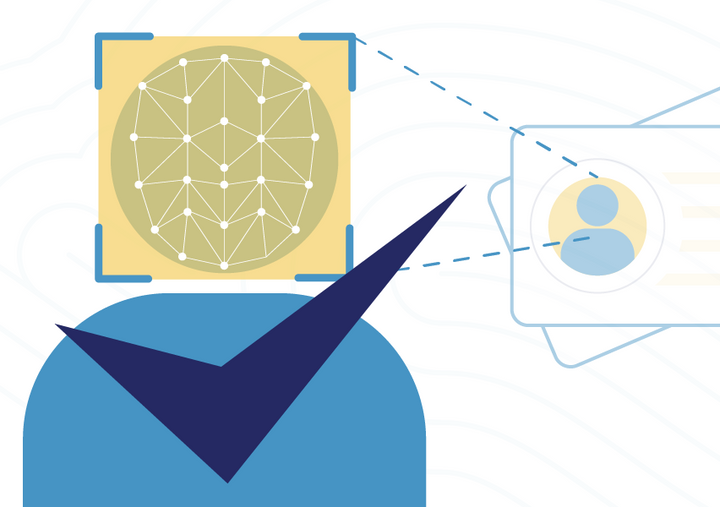Product
Stateless Service in Authentication: Enhancing Security and Scalability
Stateless services have gained importance in authentication due to enhanced security and overall system performance. They treat each authentication request as an isolated transaction, avoiding the storage of personally identifiable information (PII). Stateless services offer several advantages, including enhanced security, scalability, privacy, fault tolerance, and compliance with data protection regulations. Stateless services can be built on top of Authenticate by using APIs to trigger verification actions and Medallion to capture and verify identity-related information.

In recent years, stateless services have become essential in authentication services because they enhance security, scalability, and overall system performance. We support the ability to build stateless services on top of Authenticate, where Authenticate handles the state for the client.
In the context of authentication, stateless service means that each authentication request is treated as an isolated transaction, and the service does not rely on previously stored data. So, every time a user interacts with the service, it is treated as a new request, and none of the information is retained beyond the scope of that specific interaction. In simple terms, stateless services do not store your Personally Identifiable Information (PII). They do not store data about their users, such as login credentials, user history, or personal details collected during authentication.
Advantages of Stateless Authentication Services
Enhanced Security
Stateless authentication services improve security by reducing the attack surface. Since there is no stored data on the server, the potential for data stealing or manipulation is significantly reduced. Stateless services can generate authentication tokens for each request, ensuring they are only valid for a single transaction.
Scalability
Stateless authentication services are consistently scalable. Each request is self-contained, making it easy to distribute authentication requests across multiple servers. This scalability is crucial for applications that experience different traffic levels or a sudden hike in user activity.
Privacy
By not storing personal information, stateless services minimize the risk of data breaches and increase user privacy protection.
Fault Tolerance
Stateless services are resilient to server failures. If one authentication service becomes unavailable, requests can be redirected to other functioning services without losing information. Users can seamlessly continue their authentication processes without any disruptions.
Compliance
Stateless services can help organizations comply with data protection regulations, such as GDPR and CCPA, by not storing personal information.
Building a Stateless Identity Service on top of Authenticate
- A stateless service can be built on top of Authenticate by using our APIs to trigger different verification actions and Medallion to capture and verify identity-related information.
- A typical use case is when a company will forward the data capture from a form to Authenticate's API to create a user. The company will store just the user's UUID on their system.
- The next step would be to create a Medallion verification link using our API and send the link to the user. The user will use the Medallion link to submit a Govt ID or perform a quick Knowledge Based Assessment (KBA) to verify their identity.
- Once this is complete, Authenticate notifies the business using a webhook.
- Throughout this process, PII is never saved in the business' systems.
Stateless services have emerged as a valuable approach to authentication, offering enhanced security and scalability for modern applications and systems. As technology evolves, stateless authentication services will likely remain vital in building robust and secure authentication mechanisms for a wide range of applications.
